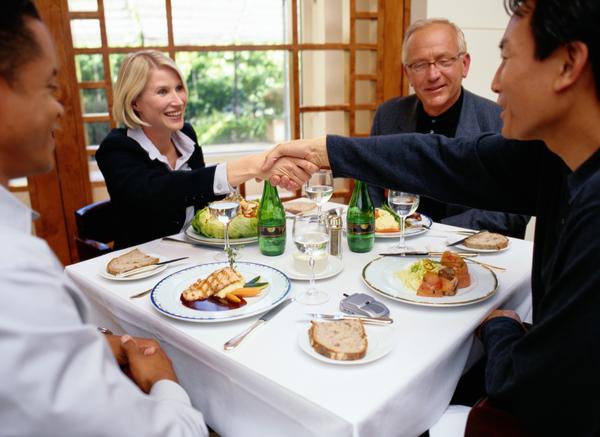Disclosure: This article is not intended to replace in any way professional accounting advice.
One area which causes a lot of confusion amongst startups (and businesses of all sizes) is around meals and whether they can be claimed as a tax deduction.
It gets really tricky, and is not a simple yes/no answer. In some instances the Tax Office will allow a tax deduction in your business tax return for your meal. In other instances, the Tax Office will consider your meal as “Entertainment”. When classed as “Entertainment”, you are also subject to Fringe Benefits Tax (another tax).
What causes a lot of confusion on this topic is that the ATO has not provided a clear definition of entertainment when it comes to meals. They have, however, provided some examples which we use as a guide, and which asks four questions to reach a decision as to whether your meal is entertainment or not. The questions are:
a) Why is the food or drink being provided – i.e. what is its purpose. If it is provided in a social setting then it is more likely to be entertainment
b) What food or drink is being provided – as light meals start to become more elaborate, then they start to take the character of entertainment
c) When is the food or drink being provided – meals provided during work hours are less likely to be entertainment, however with this point it’s especially important to consider the purpose and whether it is social.
d) Where is the food or drink being provided – meals consumed on your business premises are less likely to be entertainment
These four questions cannot be considered by themselves, but must be considered collectively, with questions 1 and 2 being the most important according to the ATO.
In summary, when it comes to chatting to start-ups which we work with at Nudge, we use the following as rules of thumb:
(1) Meal Entertainment is subject to Fringe Benefits Tax
(2) Food or drink consumed at a social function is treated as meal entertainment
(3) Generally, all meals will be treated as meal entertainment except in certain circumstances
(i) A light meal is provided on your business premises as part of a working lunch/ breakfast/ dinner
(ii) Your meal (as a form of replenishment, as opposed to being substantial/ excessive) is consumed whilst travelling for a business-related purpose, e.g. to attend a conference.
In these circumstances, where meals are not considered entertainment, they are tax deductible and not subject to Fringe Benefits Tax.
(4) Morning and afternoon tea consumed on business premises (think the biscuit tin and coffee machine) is not treated as a meal, but a refreshment and is tax deductible.
It’s important to note that even if you have limited facilities in which to have a business meeting (i.e. no office), so you hold your meeting at a café, it unfortunately doesn’t change the above factors in any way.
Remember; always track your numbers when it comes to those business lunches. It’s important to know where your money is going (even if you can’t claim it as a tax deduction).
Emma Petroulas is Client Happiness Director at Nudge Accounting. She also lectures in Small Business at the University of Technology, Sydney (UTS).




















Trending
Daily startup news and insights, delivered to your inbox.